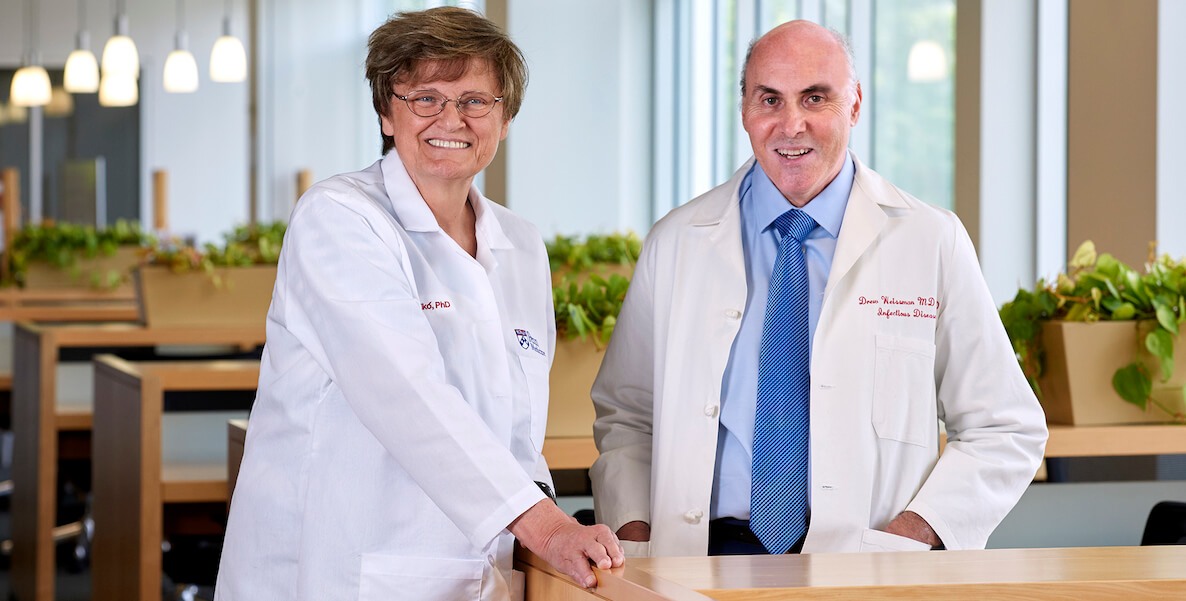Since 1903 and until last week, there were 228 Nobel laureates in Physiology or Medicine. Of that number, only 13 were women. Last week, Katalin Karikó earned the distinction of becoming number 14. Her story is one of genius, resilience and overcoming obstacles. Her interview on the PBS News Hour last week is an inspiration to anyone who has been underestimated and excluded.
Demoted by Penn, rejected by scientific journals, Karikó continued her groundbreaking work. She and her husband also raised a daughter, Susan Francia, a graduate of Abington High School with bachelor’s and master’s degrees from the University of Pennsylvania — and an Olympic gold medalist rower. In the televised interview, Karikó encourages women not to make a choice between professional achievement and family. Instead, she archly but accurately advises women to marry “the right guy.” (Someone had to drive Susan to those early morning rowing competitions!) I look forward to reading more about Karikó’s life and discoveries in her new book, Breaking Through: My Life in Science.
Why did Penn demote a future Nobel Prize winner?
Karikó does not blame Penn. On the contrary, from all accounts, her Penn Nobel Prize-winning partner Drew Weissman was consistently supportive as she faced repeated obstacles. When Karikó and Weissman first met at, of all places, an office copy machine in the 90s, Weissman was already an established Penn professor — and Karikó lacked status and a permanent appointment.
Weissman believed in her, and praises Karikó for pushing back against the naysayers. He says that she “lit the match,” illuminating the way to Covid vaccines that have saved millions of lives. I’m sure we all remember the despair we felt in the spring of 2020, when we heard that preventive Covid vaccines might be three to six years away. We feared long-term separation from loved ones. We tried to imagine how long we could go without hugging grandchildren. Then, in less than a year, a savior from our horrifying vulnerability to a mystery virus appeared in the form of a different kind of vaccine. Karikó’s years of unrewarded research made that miracle possible.
Karikó does not point fingers at individuals. She blames the system — the unexamined workings of the scientific community. In the 90s, Karikó did not win the grant funding that was a prerequisite to a tenure-track university position, so Penn demoted her and cut her pay.
Karikó’s story is one of genius, resilience and overcoming obstacles.
According to the Chronicle of Higher Education, “Years later, she was told she was ‘not of faculty quality’ and kicked out of her lab space. A paper she and Weissman published in 2005 was initially desk-rejected by Nature, which considered it an ‘incremental contribution.’ (The paper appeared in Immunity instead.)”
Why were the readers of grant proposals and scientific articles so blind? The answer is that Karikó’s research represented a paradigm shift. Thomas Kuhn in 1962’s The Structure of Scientific Revolutions contrasts “normal science,” which depends on step-by-step work on expected patterns (paradigms) with “revolutionary science,” the discovery of concepts that don’t fit the established pattern and do require asking new questions.
Early reviewers of Karikó’s work called it “science fiction.” Could it be that some of their skepticism was based on her identity as a woman outside their inner circle? In that interview, Hungarian-born Karikó says that her grant proposals may have been less well-written than others’ because English is not her first language.
I have to interject that well-endowed universities like Penn have grant offices with skilled writers ready to help scientists make the best possible presentation of their ideas. But the university — and not just her research partner — had to believe in her and invest in her.
Follow Karikó’s advice: Look forward, not backward
I hope that the scientific community learns from this story. Perhaps, those reviewing grant applications and scientific articles will be more open to the possibility of revolutionary work, even if they do not recognize the name — or respect the gender — of the applicant.
Here’s something that Penn can do immediately:
-
- Draw from the billion dollars in royalties from patents Karikó made possible to fully endow Katalin Karikó Scholarships and Fellowships for Women in Science.
- Establish visiting lectures, open to the public, by renowned female scientists.
- Develop additional ideas to support revolutionary science and to promote a paradigm shift in ways that women are regarded in the field.
What we can all do:
-
- Read Katalin Karikó’s book, Breaking Through: My Life in Science.
- Support universities that promote and honor women scientists.
- Encourage women to pursue science and to have families like Katalin Karikó.
- Recognize, as we learn in Hamilton, that “immigrants get it done” — including winning the Nobel Prize.
Elaine Maimon, Ph.D., is an Advisor at the American Council on Education. She is the author of Leading Academic Change: Vision, Strategy, Transformation. Her long career in higher education has encompassed top executive positions at public universities as well as distinction as a scholar in rhetoric/composition. Her co-authored book, Writing In The Arts and Sciences, has been designated as a landmark text. She is a Distinguished Fellow of the Association for Writing Across the Curriculum. Follow @epmaimon on Twitter.
![]() MORE FROM ELAINE MAIMON
MORE FROM ELAINE MAIMON



